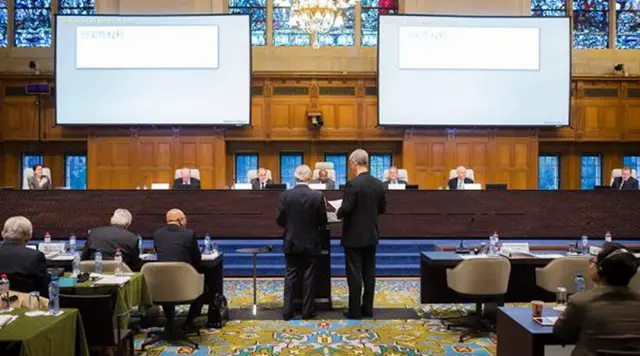In an op-ed recently carried by the French daily Le Figaro, Chinese Ambassador to France Zhai Jun has reiterated the country's stance that China does not accept the arbitration on the South China Sea issue.
The sovereignty over the islands in the South China Sea and their adjacent waters belongs to China, Zhai noted in the signed article published on June 24.
In the 1970s, the Philippines successively seized several of the Chinese Nansha islands and started to claim sovereignty of these island and the surrounding waters, which the Chinese government repeatedly denounced as a serious violation of China's territorial sovereignty and maritime rights, Zhai said.
The dispute between China and the Philippines over the South China Sea is in fact about the sovereignty of the islands, Zhai explained.
The arbitration proceedings initiated by the Philippines are based on certain provisions of The United Nations Convention on the Law of the Sea (UNCLOS) adopted in 1982. At the same time, the Convention also allows a member State to declare in writing that it does not accept one or more compulsory dispute settlement procedures of certain categories of disputes.
The Chinese government made such a statement in 2006 rejecting any binding dispute resolution, including the arbitration, for disputes concerning the delimitation of maritime areas, and application of laws, as well as for the disputes that the United Nations are exercising functions to resolve by its Carter, Zhai said.
So, the Philippines have tried to hide its real purpose of its requests. It's obvious that these requests in fact are about the sovereignty of certain islands and reefs in the South China Sea, and they aim to legitimize the claims of the Philippines in this manner, Zhai wrote.
The arbitration on the South China Sea is undoubtedly the result of the intervention of outside powers and the will of an Arbitration Tribunal which does not hesitate to excessively expand its competence. Similarly, some voices urging China to accept the ruling of the Arbitration Tribunal reflect an international context which is more than complex. With this arbitration, it is not only the right of China but rather the rights of all state parties to UNCLOS that are violated, Zhai stressed.
Experts' Opinions on the Arbitration
An arbitral tribunal's decision to allow a case unilaterally initiated by the Philippines is also highly questionable, according to a group of leading experts on international law who concluded a seminar in the Hague.
"Because there are so many possible choices regarding how to settle the claims, it will be difficult for a court or an arbitral tribunal to make a proper decision," said Sienho Yee, chief expert at the Institute of Boundary and Ocean Studies of Wuhan University, who presented a conclusion of some 30 experts during a press briefing.
"We also heard the positions by the experts that the tribunal seemed to be manipulating words in its decision (on jurisdiction)," Yee said, noting that the tribunal did not respect China's explicit right to exclude territorial and delimitation disputes written in the United Nations Convention on the Law of the Sea (UNCLOS).
Pemmaraju Sreenivasa Rao, former chairman of the UN International Law Commission, said the tribunal has put itself in a very difficult position.
"The tribunal said it would not try to settle sovereignty disputes, but only to determine geological features. However, the Philippines' claims will eventually lead to the question of who owns it, and the tribunal has no jurisdiction over this matter," said Rao, who participated in the third UN Conference on the Law of the Sea from 1973 to 1982 that led to the adoption of the UNCLOS.
Rao's opinion was echoed by Abdul G. Koroma, a former judge of the International Court of Justice who also took part in the historic conference.
"It is stated in the convention that a tribunal will not be entitled, will not have the right to pass judgment on a territorial and boundary dispute, because it has not been equipped; it has not been given competence to do so," Koroma said. "You cannot use the jurisdiction of one to determine the other."
"It's like someone who has a brain tumor and went to the doctor, and only asked for flu medication. We all know that it is not going to cure his headache," Michael Sheng-ti Gau, a professor of public international law at the Law of the Sea Institute at Taiwan's Ocean University, commented on the Philippines' claims in the case.
The claims of the Philippines only scratch the surface, but do not cover the core dispute, which is a sovereignty issue. As the court cannot rule on something that is not presented in the claims, the result of the arbitration is unlikely to have any effect on the current situation, Gau said.
The experts from Asia, Africa, the United States and Europe exchanged views on the case at the seminar, co-organized by Leiden University's Grotius Center for International Legal Studies and Wuhan University's Institute of Boundary and Ocean Studies.
(APD)
 简体中文
简体中文

